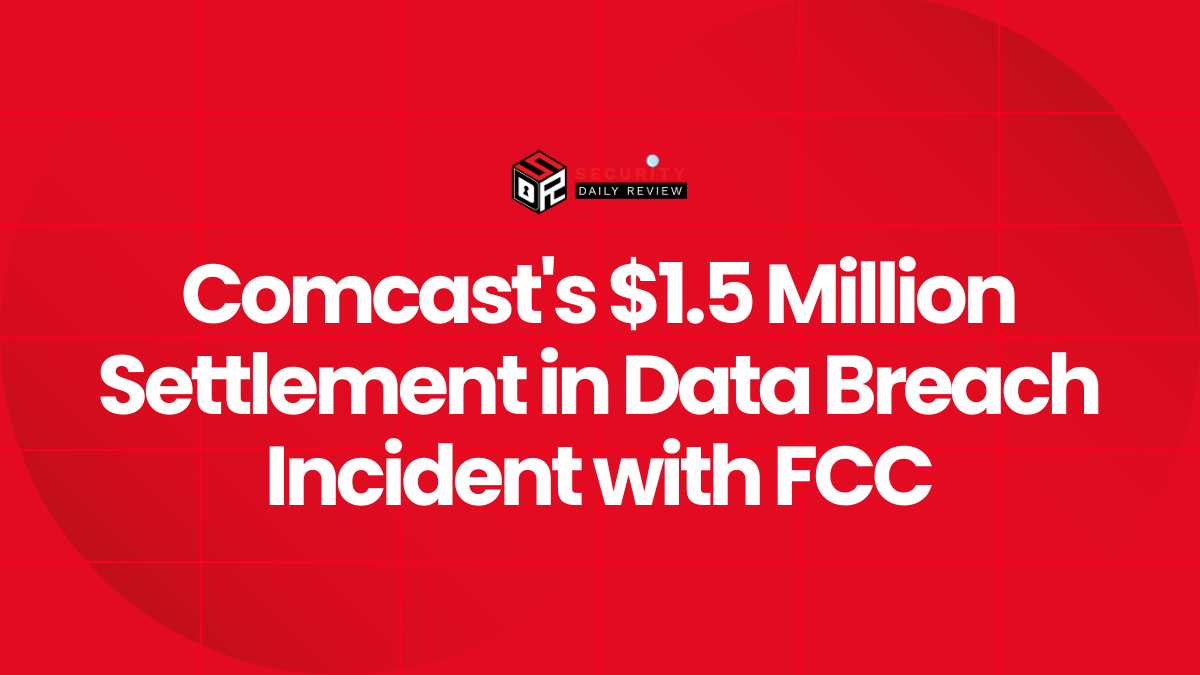Comcast found itself under the Federal Communications Commission’s (FCC) scrutiny following a significant data breach caused by a third-party vendor. The breach, which occurred in February 2024, exposed the personal information of nearly 275,000 Comcast customers. To settle the investigation, Comcast agreed to a $1.5 million fine. This incident underscores the escalating importance of robust data security measures when partnering with third-party vendors.
Comcast’s Vendor Breach: A Serious Security Lapse
Comcast, the telecommunications giant, faced a damaging data breach caused by shortcomings in a vendor’s security practices.
This breach was a result of inadequate cybersecurity measures employed by a third-party vendor responsible for handling customer data. The vendor’s vulnerabilities led to the exposure of sensitive customer information, including names, addresses, and account-related details. Given the vast extent of the breach, it posed severe privacy risks and highlighted gaps in Comcast’s oversight of its vendors’ cybersecurity policies.
The Financial and Reputational Consequences for Comcast
Comcast’s settlement with the FCC illustrates both financial and reputational impacts of the data breach.
The $1.5 million fine imposed by the FCC represents a significant financial repercussion for Comcast, emphasizing the monetary risks associated with cybersecurity failures. Moreover, the breach has adversely affected Comcast’s reputation, with customers questioning the company’s data protection capabilities.
Such incidents serve as critical reminders that:
- Protecting customer data requires constant vigilance and assessment of vendor security measures.
- Organizations ought to enforce stricter controls and audits of third-party vendors.
- Transparency and swift action in response to breaches are crucial for maintaining customer trust.
Vendor Data Security: A Growing Concern
Across industries, reliance on third-party vendors has led to increased concerns about data security.
Organizations often depend on vendors to manage extensive volumes of sensitive data. This reliance necessitates stringent security protocols to prevent unauthorized access. As illustrated by the Comcast breach, lapses in vendor security can have cascading effects, compromising customer privacy and exposing enterprises to financial liabilities and regulatory actions.
Strengthening Vendor Accountability and Cybersecurity
Efforts to mitigate third-party risks need to focus on enhancing accountability and adopting advanced cybersecurity measures.
- Continuous Monitoring: Companies should continuously monitor vendor security practices and ensure any potential vulnerabilities are addressed promptly.
- Regular Audits: Periodic security audits should be mandated, with requirements for vendors to provide detailed reports on their cybersecurity posture.
- Clear Contracts: Contracts with vendors must clearly define cybersecurity obligations and repercussions for breaches.
While the Comcast breach had substantial fallout, it serves as a catalyst for improved cybersecurity practices and highlights the need for robust vendor oversight. This case reminds businesses of all sizes that safeguarding data is an ongoing, complex challenge requiring diligence and dedicated resources.









